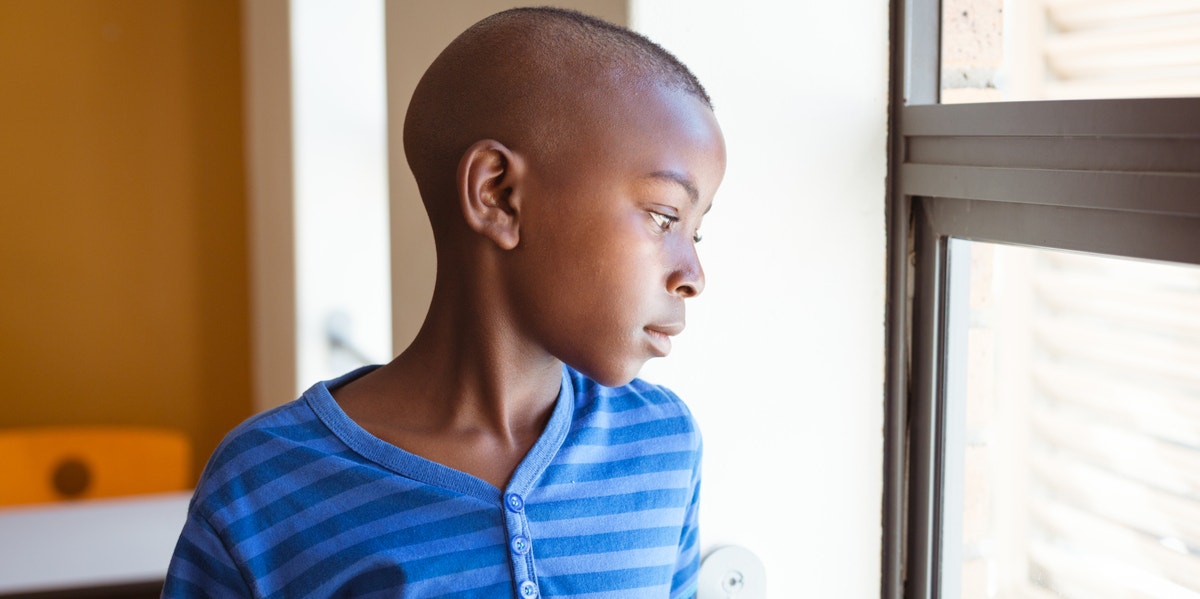Why 250 Preschoolers Are Expelled In The US Each Day — More Than In Any K-12 Grade
That's A LOT of children.
 wavebreakmedia / Shutterstock
wavebreakmedia / Shutterstock Preschool is the place that toddlers go to to learn how to become children. Elementary school is the place that children go to to learn how to become young adults. And so on and so forth.
How are young children supposed to learn and grow if they are on the brink of constant punishment for being “too aggressive” or for “crying too much.?”
How many preschoolers are expelled each year?
An estimated 50,000 children under 5 were suspended, and 17,000 were expelled, across the nation in 2016.
Other reports say approximately 250 preschoolers are expelled or suspended on a daily basis.
This calculation is likely underestimated, as it does not take into consideration informal preschool-expulsion or home-based child care.
Preschool children are expelled or suspended more often than students in K-12.
A nationwide study suggested that the rate of preschool expulsion is 3 times the rate of K-12 expulsions.
The U.S. Departments of Health and Human Services and Education provided state recommendations to limit the number of childhood suspensions and expulsions in 2014.
Colorado and Louisiana decry suspension and expulsion in their reimbursement policies for early childcare programs.
To aim to terminate expulsion altogether, other states have enacted policies to improve and decrease expulsion and suspension practices in public school early childcare.
On August 14, 2017, former Illinois Governor Bruce Rauner signed legislation that banned early childhood expulsion in his state.
If only infants, toddlers, and preschoolers across the entire United States of America could receive the same respect.
Preschool suspension may have harmful impacts.
The high rate of suspension and expulsion is detrimental to the psychological and emotional well-being of preschoolers.
When a child is expelled from preschool, in addition to losing the right to an education, they are more likely to lose chances to socialize with other children and be positively impacted by adult role models.
Preschoolers can also easily internalize being kicked out of school as a reflection of their character, rather than an unjust system that is more focused on penalizing kids for simply being kids.
It’s no secret that preschool expulsion can increase a child’s chances of being expelled or suspended in grades kindergarten through twelve.
RELATED: Mom Slams Cruel Parents Who Mocked Her 11-Year-Old Daughter For Wearing A Suit To School Dance
Black preschool children are expelled more often that white children.
Federal data indicates that Black children are disciplined at a grossly higher rate than white children.
Discipline is applied disproportionately against Black children.
Despite the fact that Black children represent less than one-fifth of enrollment, they make up more than 50% of expelled children.
Black boys make up 41% of boy preschool suspensions, but only 18% of overall preschool enrollments for boys.
Black girls, make up 53% of girl suspensions, and only 19% of overall female preschool enrollment.
Shantel Meek, founding director of the Children’s Equity Project and an Obama administration senior policy adviser for early childhood development, was the lead architect behind the federal policy statement on expulsion and suspension policies in early childhood settings.
“Recent data indicate that expulsions and suspensions occur at high rates in preschool settings,” the statement indicates. “In addition, stark racial and gender disparities exist in these practices, with young boys of color being suspended and expelled much more frequently than other children.”
The policy statement also expresses that “these disturbing trends warrant immediate attention” from people who work in the early childhood and education fields. In hopes of ensuring the safety, health, and educational and developmental well-being of young children in preschool settings, the rates of expulsion and suspension should be distinctly limited and eventually eliminated altogether.
"Taking a colorblind approach to racism has never worked to address inequity; it has only ever increased it," Meek and Evandra Catherine, a postdoctoral research scholar at the Children’s Equity Project at Arizona State University said. "This is no different. Talking about racial equity is not enough. It must be reflected in policy, in practice, and in budgets."
Izzy Casey is a writer who covers pop culture, news, and entertainment for YourTango. She received her MFA from the Iowa Writers' Workshop. Her poems have been published in Gulf Coast: A Journal of Literature and Fine Arts, BOAAT, The Columbia Review, Bennington Review, New York Tyrant, and Black Warrior Review.

